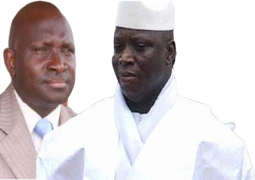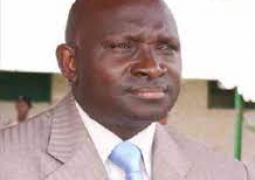
Discussing with The Point the process undertaken by the Constitutional Review Commission (CRC) to reach this stage of the draft constitution, Lawyer Salieu Taal emphasised that the CRC process was marked by transparency, inclusivity, and broad participation.
“It was a multi-stakeholder effort that involved contributions from the three arms of the state —the judiciary, executive, and legislature — as well as civil society, interest groups, women, youth, religious organisations, and the Gambian diaspora,” he explained, noting that the 2024 bill, in contrast, “reflects the interests of the executive branch” rather than the inclusive approach of the CRC.
He also highlighted that unilateral changes were made to the bill, with certain provisions being removed and new ones added. This, according to Taal, essentially allowed the executive to have a "second bite of the cherry", “undermining” the integrity of the original draft produced by the inclusive and transparent CRC process.
“This, as a starting point, is a departure from the multi-stakeholder approach of CRC 2020,” he stated. “Secondly, the least we expect from the Executive is for them to publish the changes they have made on the rejected draft bill and advance their reasons for the proposed changes.”
Additionally, Taal wants to remind the Executive that the constitution should be people-centred and driven by the supreme interest of the citizenry. “We should learn from our recent history and build governance institutions that are anchored on the recognition of the supreme power of the citizenry, and that the balance of power should tilt towards ensuring citizens can legitimately hold their leaders accountable,” the studious lawyer said. This can only be realised with a people-centred constitution that ensures the executive is subject to adequate parliamentary oversight, he added, stating clearly: “This current draft has not achieved that balance.”
Furthermore, the gazetted draft introduced a two-term limit of five years but removed the clause that gave it retroactive effect. Lawyer Taal expressed concern about the removal of the clause, which would have let the term limit have effect from a date before it is approved.
Appropriately, the gazetted constitution has introduced a specific provision that allows for the establishment of an internationalised tribunal capable of trying perpetrators of international crimes and violations of human rights using international law. “This is very much welcomed, and will make it easier for the country to establish internationalised tribunal to prosecute the perpetrators of serious human rights violations and international crimes between 1994 and 2017,” he said.
In accordance with the 1997 constitution, the draft will be gazetted for a period of 3 months, and subsequently for another ten days. The general public can have access to document through the Ministry of information and the Gambia Printing and Publishing Corporation, according to government.




